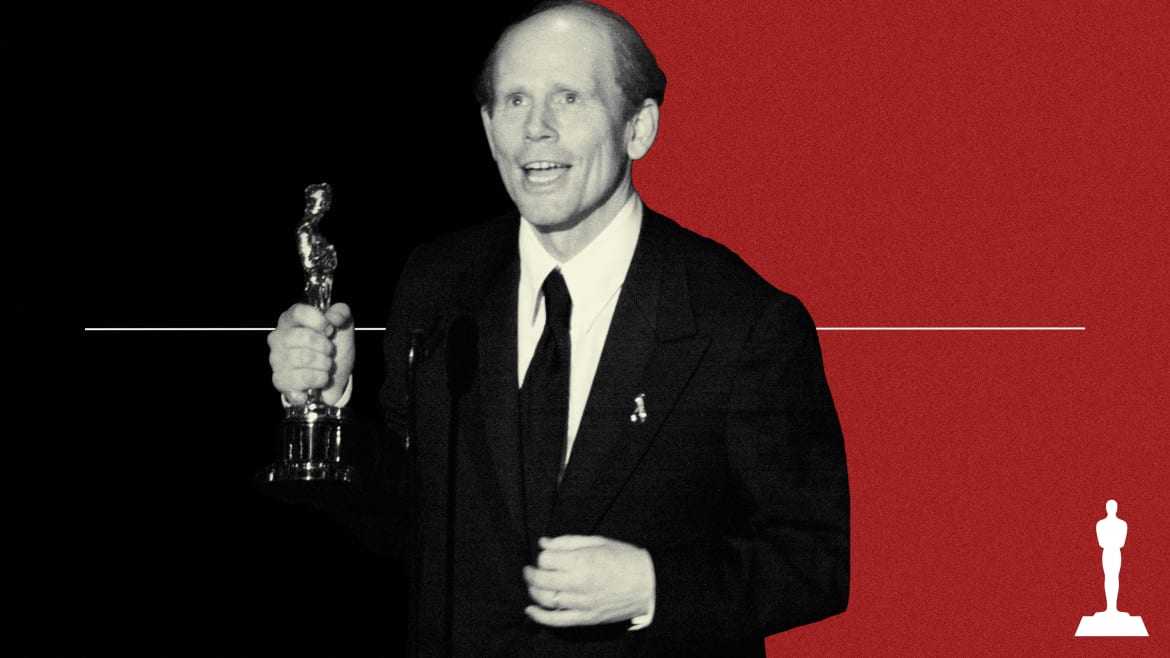Photo Illustration by The Daily Beast/Reuters
The top headlines made by the 74th Academy Awards, hosted by Whoopi Goldberg on Mar. 4, 2002, were that Denzel Washington had joined Sidney Poitier as the only Black winners of the Best Actor prize (for Training Day), and that Halle Berry had become the first Black woman to take home Best Actress (for Monster’s Ball). Those historic successes, consequently, helped overshadow one of the most wrongheaded outcomes in the production’s history—which also, in a strange twist, gave birth to one of its most touching moments.
Going into the show, the frontrunner was ostensibly The Lord of the Rings: The Fellowship of the Ring, the first installment in Peter Jackson’s fantasy trilogy, which netted a pack-leading 13 nominations. It would net four statuettes (including for cinematography), but Best Picture would have to wait until The Lord of the Rings; The Return of the King.
Instead, the evening largely belonged to A Beautiful Mind, whose eight nominations were tied for second-most with Moulin Rouge!, and whose true-life tale of unlikely triumph in the face of hardship—concerning Nobel Laureate mathematician John Nash (Russell Crowe), who suffered from schizophrenic delusions—proved to be catnip for voters. The film won four trophies: for Best Picture, Best Adapted Screenplay (Akiva Goldsman), Best Supporting Actress (Jennifer Connelly) and Best Director (Ron Howard).

